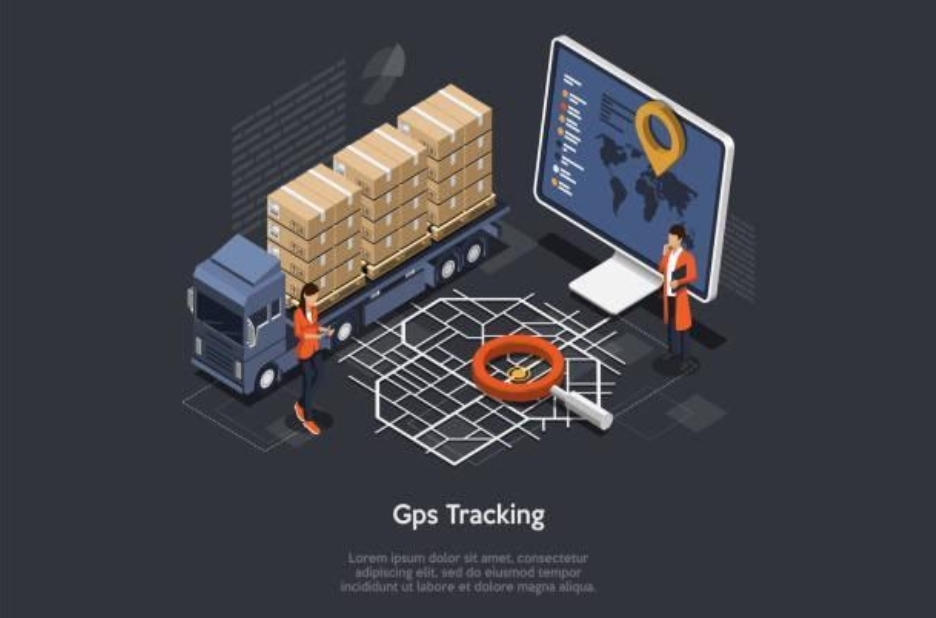Operating a fleet requires preparation for various challenges, including delays, breakdowns, accidents, costs, and lost cargo. Handling one or more of these problems for every vehicle in the fleet can be a nightmare.

Instead of all the stress, you can get smarter by installing a GPS in every vehicle and then managing all of them from one platform. The GPS software can help you achieve more if you optimize the capabilities and use the data and features creatively. Therefore, you need the most efficient one with more features and capabilities.
After installing the best GPS and optimizing all the capabilities, you anticipate the following efficiency benefits to the company.
1. Fleet Cost Efficiency And Operation
As a fleet manager, one of the concerns you must address is fleet operation costs. You should know the fuel, repair, insurance, and delay costs. Cutting these costs can be challenging, but you don’t have to worry about anything if you have the most efficient GPS.
The system will enable you to collect and analyze all the logistic data to generate reports that are ideal for route optimization. The reports can help you schedule the shortest routes to your destination, reducing fuel consumption per trip.
As a result, you can use the fleet for more trips before you repair it, boosting the profits per maintenance schedule. Additionally, since the trucks will cover a shorter distance per trip, you will hardly address issues related to delays.
When integrated with the maintenance schedule, the GPS can notify you to service the fleet on time. Timely maintenance helps avoid accidents that trigger more liabilities or higher insurance premiums.
To optimize fleet operations, buy the most efficient GPS tracking software with more features. You can activate all these features to optimize logistics efficiency and cost-effectiveness.
2. Fleet Safety and Lifespan Benefits
When effectively used, A GPS tracker can be one of the safety features for your feet. First, sync the system with a fleet maintenance schedule, including when the fleet is due for repairs.
Since the GPS records the mileage, it can notify the fleet manager or driver when the maintenance is due. The notification is ideal to ensure the vehicle is within the maintenance mileage. Regular and frequent maintenance ensures your fleet operates optimally and can handle different routes without sudden breakdowns and roadside emergencies.
Regular repairs are also critical to safety, especially for trucks hauling large loads over long distances. This fleet must operate optimally and efficiently to avoid accidents due to malfunctions.
Designate a storage server to store all the fleet GPS data to enable you to monitor all the maintenance, records, distance covered, and fuel usage rates. You can use this data to manage fleet lifespan and depreciation expenses. If the truck consumes more despite repairs, consider disposing of or changing key elements like the engine to extend the lifespan.
Notably, due to the maintained repairs, they will hardly break down or undergo frequent wear and tear due to lack of maintenance. Therefore, you can profit more from a fleet before the depreciation expenses rise and you decide to dispose of it.
3. Improved Delivery and Scheduling
Every logistics and fleet operations officer should strive for efficient, fast, and timely delivery. Achieving these goals requires monitoring the distance and fleet as they move to different destinations. You can activate live monitoring and engine on-and-off notification features to stay ahead.
These features will inform you about the truck’s location, stops, rest duration, and any deviation from the main route. You can follow up with the driver to ensure they avoid activities that will lead to delays. You can control the rest duration and the exact location where the trucks are to go.
Secondly, route optimization reports generated from GPS route analytics can help you schedule the shortest route to the destination. With such a streamlined system, you can deliver goods on time and cover more trips. Such activities can also help the company boost customer services by ensuring timely deliveries.
4. Logistics and Fulfillment Strategies
One issue you must consider is empty return trucks. Fueling and operating such trucks can be expensive since they carry no goods, making them unprofitable. Such expenses can be overwhelming when you have a large fleet.
Instead of empty return trucks, you can schedule short-distance cargo delivery services. Using GPS, you can monitor the truck’s location and schedule it to carry goods for other people along the route as it returns to the main hub.
The GPS will help redirect the trucks and inform the clients of the exact location. You can also integrate GPS data with the company delivery and logistics system to enable customers to book empty return trucks based on location.
5. Traffic Safety and Logistics Fulfillment
If you are a third-party logistics company, you should fulfill every order as agreed upon with the customers. Therefore, you must ensure your fleet delivers all the goods without delays or issues. The fleet should arrive at the destinations on time, and there should be no major accidents that can damage the customer’s items.
Relying on GPS driver monitoring features will notify you if the driver is overspeeding or overbraking. When combined with other features, like a dashcam, the GPS can give you better control and monitoring for your drivers. These features ensure you fulfill all the orders on time without any issues.
Wrapping Up
A GPS can help you improve logistics efficiency if you optimize all the features and creatively use it to monitor and manage the risks. To achieve all the efficiency benefits, you should buy the most effective GPS software with more features and add-ons to consider. Also, ensure you can integrate it with other e-commerce and booking systems.




